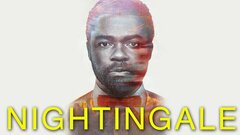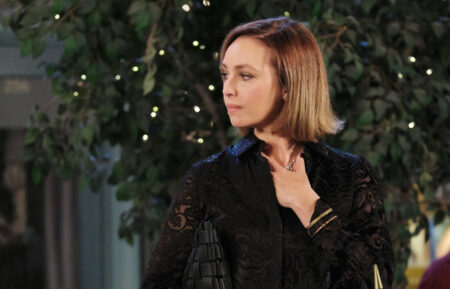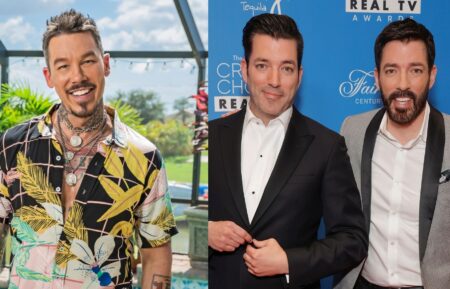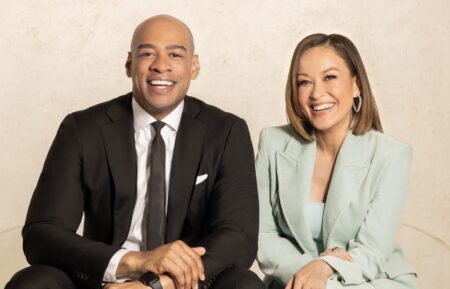One is the Loneliest Number: David Oyelowo Goes Solo in the HBO Movie Nightingale
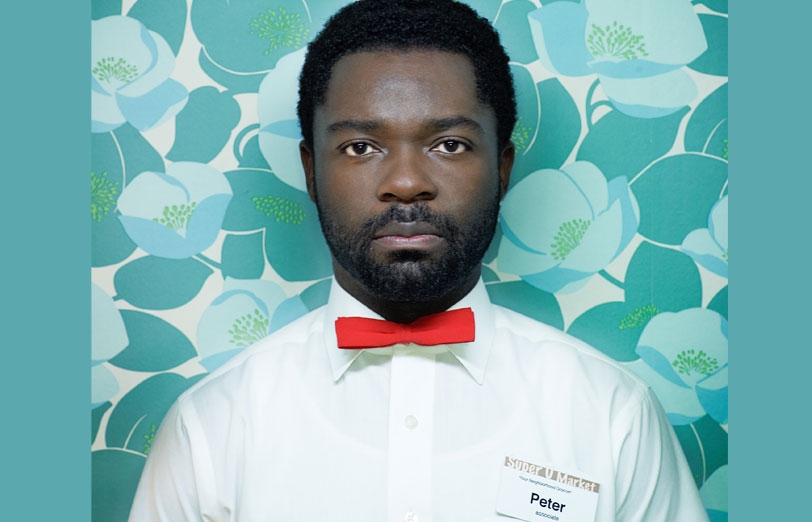
Norman Bates has nothing on Peter Snowden, a closeted Iraq war vet—played by British actor David Oyelowo—who has committed a heinous act of violence in the home he shares with his homophobic, holy-roller mother. Peter’s psychotic meltdown, as flamboyant as it is tragic, is the focus of the one-character, one-set HBO film Nightingale (Friday, May 29, 9/8c). We sat down with the extraordinary Oyelowo, best known for his role as Dr. Martin Luther King, Jr. in Selma, to find out what it was like to play this one-man game of tennis.
Was flying solo for an entire movie an odd thing? Did you miss having costars?
I was a lonely experience! When you act opposite someone, you are only as good as they are, and just as a great tennis player raises your game, so does a great actor. When you’re all alone it can be nerve-wracking because you have no barometer to tell you how things are going. No one is hitting the ball back. Even an actor doing a one-man show in the theater has the audience to work with. But Nightingale was truly solo. We even made sure that when Peter was having telephone conversations that there was no off-camera production assistant feeding me lines to play off.
Were you immediately on board with this project, or did you have some qualms?
It was a no-brainer for me. I couldn’t bear the thought of some other actor trying it, let alone succeeding! [Laughs] Even if I was bad in the role, I knew I’d come away all the richer for the experience. I’m not a star so I figured that, if the film tanked, people wouldn’t be making a big deal of it. They’d consider it a nice experiment!
So, then, you were surprised when the film was acquired by HBO?
It was such a surreal experience to drive in Los Angeles on my way to this interview and see billboards for Nightingale with my big head that is twice the size of my house. This was always, in my mind, a small project and whether or not anyone ever watched it didn’t matter to me, because it required a new level of commitment and boldness on my part. Also, you’d be hard-pressed to find a black character anywhere close to this. Peter is a bit of a nerd, a dweeb, a mommy’s boy. You cannot imagine him out there being a jock, which is so often what an African-American male is expected to be. Most African-American characters in film and TV are only allowed to play within very narrow margins. Not here.
Did Frederick Mensch, the screenwriter, write this film for a black actor?
Not at all. There’s a very specific syndrome of denial and shame in the African-American community when it comes to homosexuality but the thing I was most happy about when I first read Nightingale was that none of that was on the page. There was no suggestion of race, so those additional layers are imposed on the story because I’m a black man. It gives Peter extra baggage. It’s a pretty safe bet that his father, who is never mentioned, was very masculine, very heavy-handed. And we know that his mother was extremely overbearing and that Peter’s sexual repression is tied to her staunch religious upbringing. His mother knows about his sexuality, or at least suspects, and has really laid on the shame, so Peter’s life has all been a cover up.
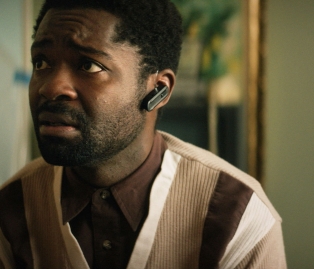
His ghastly crime is revealed early in the film. What’s the trick to making us care about the guy and want to spend a whole movie with him, knowing what we know?
There’s a little bit of Peter Snowden in all of us. In our world right now, there are more people than we’d care to admit who are suffering from chronic loneliness, many of them in big crowded cities. The audience will, quite rightly, start off judging this character. “He did whaat?” Then over the course of 90 minutes you see his humanity. You empathize with him. You may even sympathize. Like a lot of people today, Peter has decided to conduct his relationships electronically, through social media and videos on YouTube. It’s his way of feeling connection when, in truth, that’s no kind of connection at all. These days, self esteem has become tied to how many followers you have on Twitter or how many likes you get on Facebook. That can be very seductive for people like Peter, who are bereft of love and attention. There are many of us in this same kind of cycle, where getting a response on social media makes you feel alive. That’s a sad state of affairs. So, yes, there is a lot about Peter that is relatable. He is also obsessed with a longtime friend, a married man. Who among us can’t relate to the pain of unrequited love?
Word is, you stayed in character during the entire shoot. Some might see that as a bit pretentious.
I certainly thought it was a pretentious thing to do earlier in my career, and found it uncomfortable when other actors did it, especially when you are asked to address them by their character’s name even when the cameras aren’t rolling. I had been in The Last King of Scotland and Lincoln and both of those great actors—Forest Whitaker and Daniel Day Lewis—had chosen to stay in character. It was especially odd to speak with Forest and treat him like Idi Amin, the notorious Ugandan dictator. But look at the results! The brilliance of those two performances is undeniable. So, yes, I chose to stay in character for Nightingale and asked that I be called Peter by the director, Elliott Lester, and the crew. Even though I was worried about it coming off pretentious, I felt such great benefit doing it that way. Nightingale was filmed before Selma, and I made the same choice when I played Dr. King. [Laughs] I didn’t care what anybody else thought of me!

